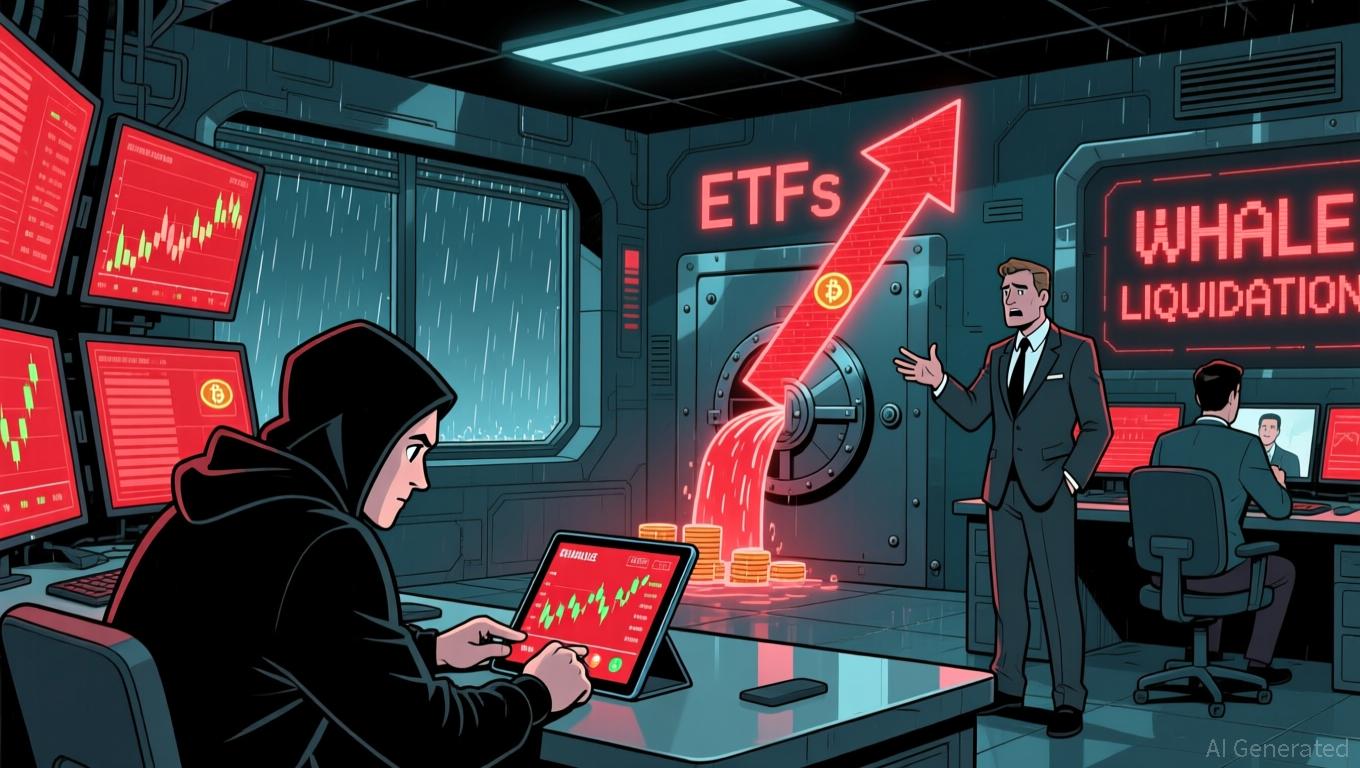Algorand and Noah Combine Financial Institutions, Blockchain Enables Immediate and Regulatory-Compliant International Transactions
- Algorand partners with Noah to merge blockchain and traditional banking, enabling compliant on-chain payments via regulated USD/EUR virtual accounts. - The integration bridges fiat and DeFi systems, allowing real-time settlements while leveraging Noah's VASP/MSB licenses for cross-border compliance. - Projects like HesabPay and Aid Trust Portal demonstrate Algorand's low-cost, instant-finality blockchain for transparent aid and financial inclusion in underserved regions. - Expected 2026 rollout aims to s
Algorand and Noah have entered into a strategic alliance to merge conventional banking systems with blockchain innovation, with the goal of providing regulated, institution-level payment services on-chain. Announced at AlgoDay during DevConnect 2025, this partnership grants developers and enterprises on the
This collaboration creates a direct link between legacy financial systems and decentralized finance (DeFi), allowing companies to process fiat payments and transform them into digital transactions on Algorand’s blockchain. Noah, which operates as a regulated financial infrastructure provider with VASP licensing in the EU and MSB status in the U.S. and Canada,

Algorand’s network, recognized for its minimal transaction costs and rapid finality, has already powered initiatives like HesabPay and the Aid Trust Portal, which utilize its platform to ensure transparent distribution of aid in areas with limited access to banking
Shah Ramezani, CEO of Noah, pointed out the opportunities for developers to design new financial solutions by combining traditional and blockchain-based tools. “Working with Algorand empowers us to back a new wave of innovators building more accessible and open financial ecosystems,” he remarked
The initial rollout of this partnership is scheduled for 2026, with Algorand’s ecosystem teams gearing up to implement the new framework. The integration is anticipated to ease cross-border payment processes and bolster compliance for institutions, especially in regions such as the U.S., Europe, and India
Disclaimer: The content of this article solely reflects the author's opinion and does not represent the platform in any capacity. This article is not intended to serve as a reference for making investment decisions.
You may also like
Bitcoin News Today: The initial independent review of Bitcoin Core's security finds no major vulnerabilities
- Brink funded Quarkslab's first independent Bitcoin Core security audit, revealing no critical vulnerabilities in the protocol's reference implementation. - The audit confirmed Bitcoin Core's robust security policies, identifying only two low-severity issues and 13 non-classified vulnerabilities. - Enhanced testing frameworks and file system optimizations from the audit are now being integrated into Bitcoin Core's codebase. - This marks a shift toward third-party validation for open-source blockchain secu

Fed's Discussion on Lowering Rates: Balancing Job Market Concerns and Inflation Risks Amid Limited Data
- Fed's December rate cut odds dropped to 52% as data gaps and labor market slowdown fuel investor uncertainty. - Governor Waller advocates 25-basis-point cut citing weak job growth and AI-driven hiring challenges, contrasting inflation-focused officials. - Key metrics like delayed September payrolls and October meeting minutes will shape final decision amid policy debate. - Global central banks and Trump's Fed chair selection add political risks to monetary policy neutrality. - Gold prices fell 3.4% as re


Bitcoin Updates: XRP ETFs See Increased Investments While Price Drops Close to $2 During Bitcoin Outflow
- Bitcoin fell below $90,000, triggering $866M in ETF redemptions and heightened volatility across crypto markets. - XRP clings to $2 support amid mixed signals: $58.6M inflows into new XRPC ETF contrast with $28M in 24-hour liquidations. - Technical indicators show extreme oversold conditions for XRP, with 41.5% of circulating supply at unrealized losses. - Institutional moves like Harvard's $443M Bitcoin bet highlight crypto's evolving role despite macro-driven selloffs.
